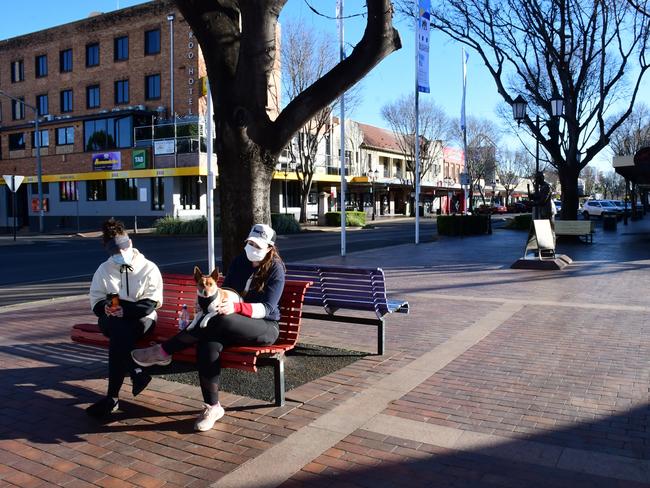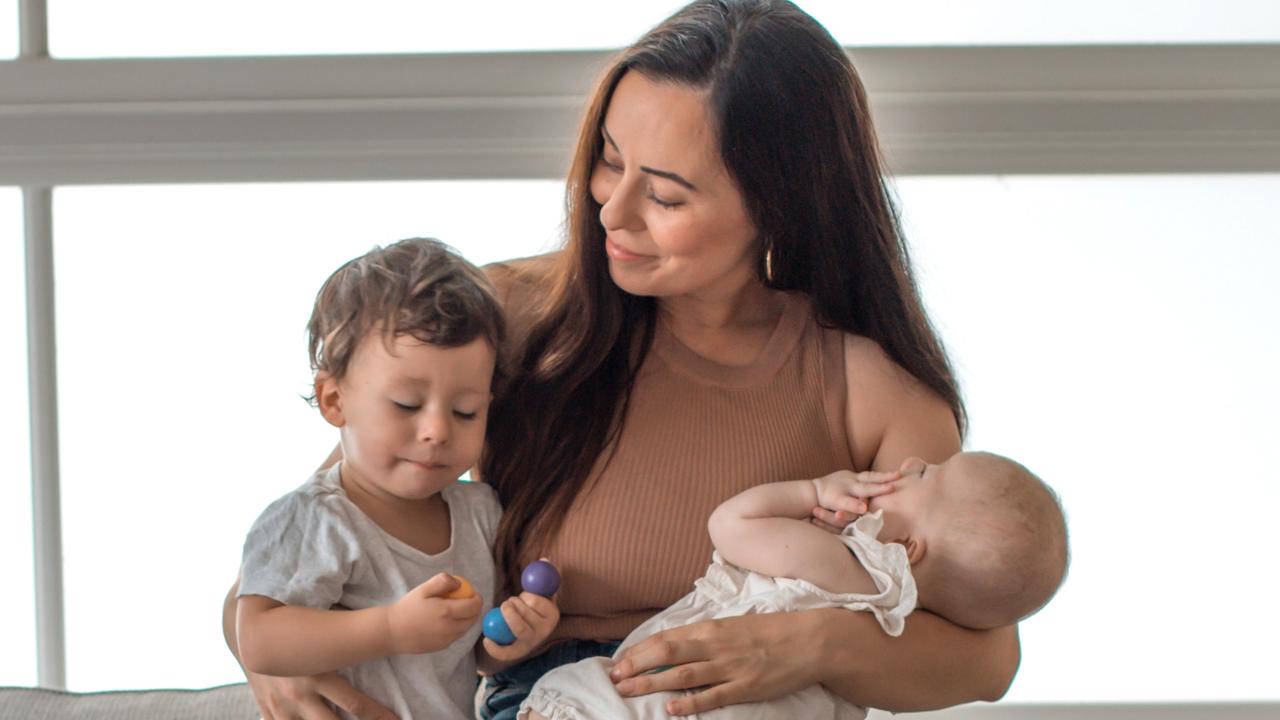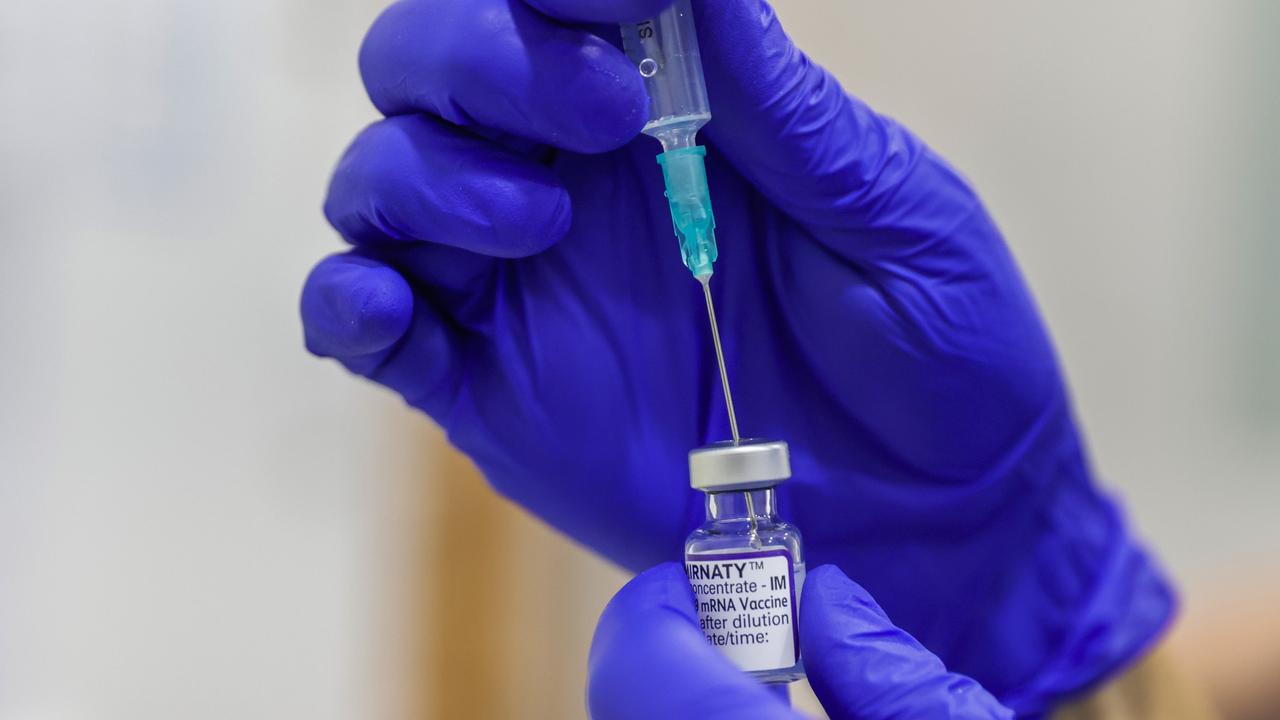NSW Covid update: Statewide lockdown after 466 cases recorded
The entire state is now under orders to stay at home after the Premier backflipped on her incremental lockdown approach. This comes as NSW recorded its ‘worst day’ with 466 Covid cases and four deaths. Use our 5km radius tracker.
NSW Coronavirus News
Don't miss out on the headlines from NSW Coronavirus News. Followed categories will be added to My News.
• This coronavirus article is unlocked and free to read in the interest of community health and safety. Click here for full digital access for just $1 a week for the first 12 weeks.
Premier Gladys Berejiklian has backflipped on her incremental lockdown approach, announcing on Saturday afternoon the entire state will live under strict stay-at-home restrictions.
The announcement, which was not mentioned at the usual 11am press conference, was made less than two hours before the restrictions kicked in at 5pm.
Now all parts of NSW must stay home, with essential shopping, work, exercise and medical or compassionate visits the only excuses for leaving the house.
We can reveal Prime Minister Scott Morrison privately raised the issue of a statewide lockdown with Ms Berejiklian in a phone conversation earlier this week.
The broader NSW lockdown was supported by both the National Security Committee, while also being consistent with the federal government’s own public health advice led by chief health officer Paul Kelly.
The Premier then decided against it at the time with Health Minister Brad Hazzard also publicly ruling it out.
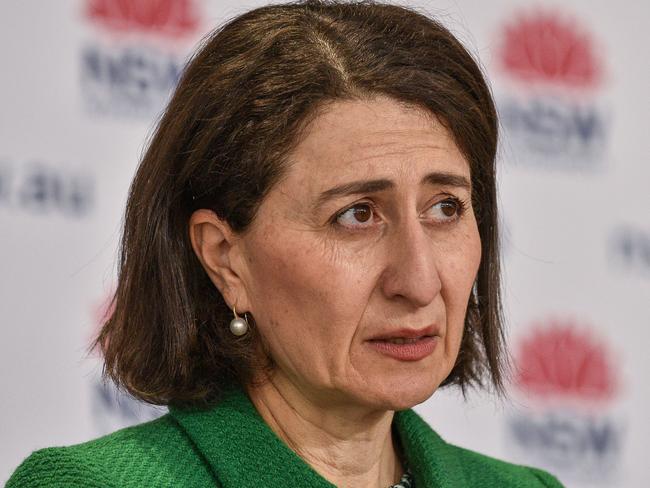
The about-face occurred after Covid-19 fragments were found in more than 10 sewage treatment plants across rural and regional NSW.
The detection resulted in Nationals leader John Barilaro and the Premier agreeing that a statewide — rather than individual local government area — lockdown should occur.
Ms Berejiklian said on social media the health advice had changed after the morning press conference.
“Following the press conference (on Saturday), I received health advice concerning multiple regional NSW areas,” she wrote on Twitter.
“As such, from 5pm, all of regional NSW will go into a seven-day lockdown. This means the whole state is in strict lockdown.”
All schooling will be done at home and travelling for exercise and shopping is only permitted within your LGA or within 5km.
The lockdown in regional areas will last for a week.
Deputy Premier John Barilaro said the new lockdown would minimise movement and protect regional NSW from the Sydney outbreak.
Mr Barilaro said the LGA by LGA approach was “death by a thousand cuts”.
“The reality here is that we’ve just got to get in front of it,” he told Sky News.
There will be a one-day grace period for weddings and funerals planned for today, but only with guests from areas not previously in lockdown.
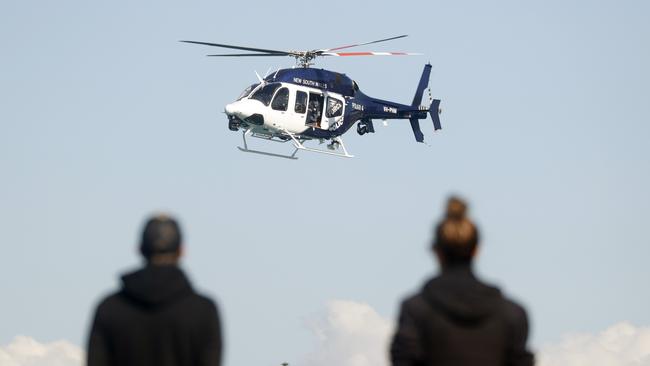
Funerals can still go ahead from tomorrow, but with only 10 mourners permitted.
Businesses allowed to remain open include supermarkets, post offices, petrol stations, restaurants and cafes for takeaway only, hardware and garden supply shops, and other essential retailers. Non-essential retailers must close.
The statewide lockdown comes following massive concerns over an outbreak in western NSW.
Yesterday 26 new cases were recorded in western NSW and 16 cases were recorded in the Hunter-New England region.
There are now 30 cases in Dubbo alone and four cases in Walgett.
It’s understood there may be some positive cases arising from a Canberra nightclub case, including up to three football teams who attended the venue and later returned to regional NSW.
The Australian Medical Association said a statewide lockdown is the best approach to keep people out of hospital.
“The piecemeal approach to lockdown isn’t working. It creates an ‘us versus them’ mentality between LGAs, when really, we need to treat this virus like it’s everywhere, all the time,” AMA NSW president Dr Danielle McMullen said.
“Every person in NSW must play their part or more people are going to get sick and, sadly, more people are going to die.”
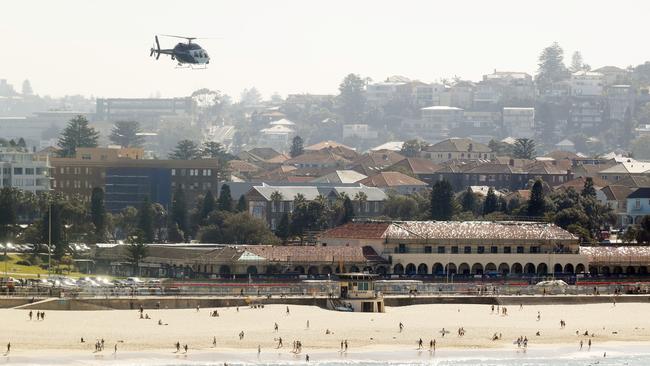
Prime Minister Scott Morrison raised the issue of a statewide lockdown with Premier Gladys Berejiklian.
Such a lockdown was supported by the National Security Committee, while also being consistent with the federal government’s own public health advice.
NSW Labor supports the statewide lockdown, Labor leader Chris Minns said.
“There has never been more of a need for clarity, certainty and transparency from the NSW government,” Mr Minns said.
“I also urge the government to ensure there are no more delays in getting financial support out to people, particularly for small businesses who are doing it incredibly tough right now.”
‘Worst day’ in pandemic
NSW has recorded 466 locally-acquired cases of Covid-19 overnight and four more deaths, Premier Gladys Berejiklian has confirmed.
“We are in an extremely concerning situation. At least 60 of the infections were in the community but that is likely to go up given the number of cases under investigation,” she said.
Of the four deaths, one was a woman in her 40s in palliative care who died at Concord Hospital. A man in his 70s who was vaccinated but had pre-existing conditions died in Liverpool Hospital. A man in his 80s died at Concord Hospital who was not vaccinated, and a woman in her 70s died at Campbelltown Hospital.
There are currently 378 people admitted to hospital, with 64 in intensive care, 29 of whom require ventilation.
“Every day we read out the statistics but behind each statistic is a human being with loved ones they have left behind and our heart goes out to all of them,” she said.
Ms Berejiklian said the Delta strain was “diabolical” and nations around the world were struggling to manage outbreaks.
However, she emphasised there was hope in vaccines, with NSW closing in on reaching 50 per cent of adults receiving at least one dose.
“The virus is circulating in higher numbers than we have ever seen in Australia full and we need to make sure that we have as many people vaccinated as possible,” she said.
“Because the statistics and the facts are that high rates of vaccination are saving lives, keeping people out of hospital and at the end of the day that is the statistic that matters.”
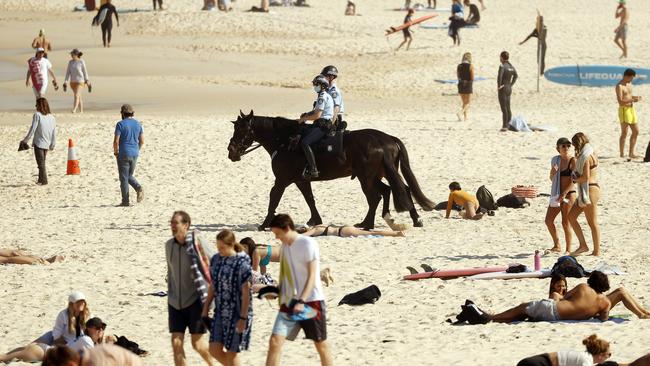
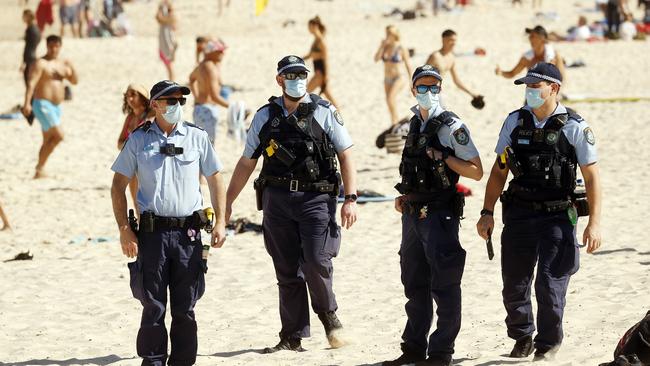
Lockdown rules tightened
The 10km rule for Greater Sydney will be reduced to 5km, meaning anyone in Greater Sydney and other lockdown areas can only travel 5km for shopping and exercise.
Fines for breaching the public health orders will also increase, with lying to contact tracers, lying on permits and breaking self isolation rules incurring a $5000 fine.
Breaching the two person outdoor exercise rule and breaching rules around entering regional NSW and visiting second homes will now have on the spot fines of $3000.
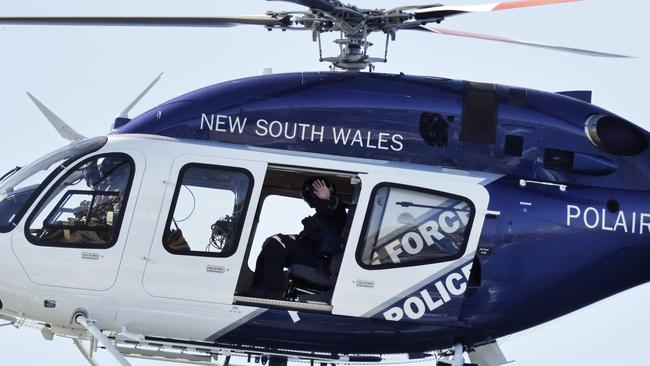
Premier Gladys Berejiklian said 500 more ADF staff will be on the ground from Monday and police will be using random check points on major roads to stop movement.
Police Commissioner Mick Fuller said the new fines and restrictions are aimed at curbing movement around the state.
“I closed the first business this morning, a cafeteria in Leichhardt for 14 days for continual breaches of the public health order and I won’t apologise that other businesses will be closed,” he said.
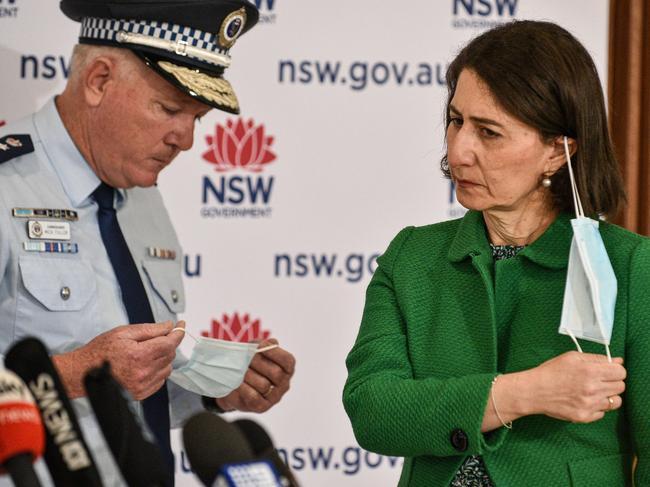
Commissioner Fuller said the time for warnings was over, and police will be coming down harder than ever on rule breakers.
“I’m not apologetic, please don’t write and complain to me.”
Police say they visited the Skull and Rose cafe on Norton St 10 times in the past two weeks and fined owner Abraham Nasr five times.
Mr Nasr has been arrested and charged twice for breaching the public health order.
Commissioner Fuller said Mr Nasr’s cafe will remain closed until he can prove he has taken steps to improve compliance.
“(Police will allege) this cafe owner, a 44-year-old man, has shown a blatant disregard for the health and safety of his community for an extended period of time, and his business will now stay closed until I’m satisfied there is no further risk to public health,” he said.
Mr Nasr claims he has never broken the rules, and said he denies ever taking his mask off inside his business.
NSW cases: the breakdown
Of the 466 locally acquired cases reported to 8pm last night, 166 are from Western Sydney LHD, 106 are from South Western LHD, 59 are from Nepean Blue Mountains LHD, 37 are from Sydney LHD, 30 are from South Eastern Sydney LHD.
Another 26 are from Western NSW LHD, 16 are from Hunter New England LHD, 15 are from Northern Sydney LHD, five are from Central Coast LHD, two are from Illawarra Shoalhaven LHD and four currently have unknown addresses.
There were 129,352 COVID-19 tests reported to 8pm last night, compared with the previous day’s total of 127,988.
Restrictions will be extended for the Armidale Regional Local Government Area, including the towns of Armidale and Guyra, until 12.01am Sunday 22 August.
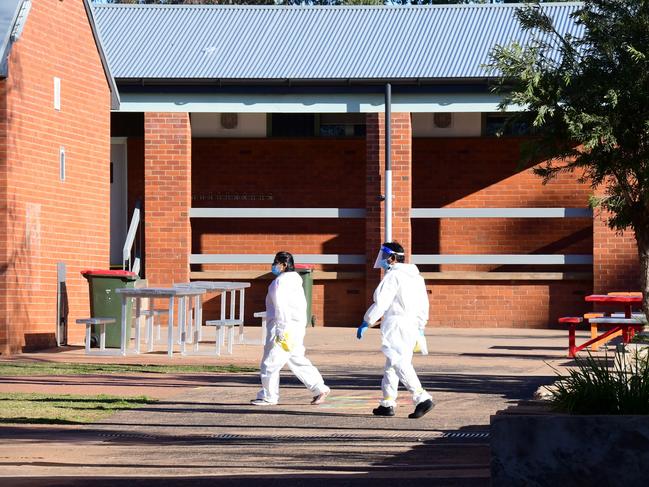
New suburbs of concern
Cases were stabilising in the Fairfield and Canterbury Bankstown local government areas, and low vaccination rates have risen to at least 40 per cent of first doses.
However several new suburbs were of growing concern in western Sydney
The largest areas of case growth was now in Blacktown, Doonside, Mount Druitt, Maryland, Guildford and Auburn, along with western NSW.
“Dubbo and the surrounding areas have seen 26 cases overnight and it is likely to health advice will ask us to extend the local government areas and lockdown. Most of Western NSW is already in that situation, and I suspect we will get that advice later today.”
NSW Health’s ongoing sewage surveillance program has also detected fragments of the virus in the Ballina and Broken Hill sewage treatment plants.
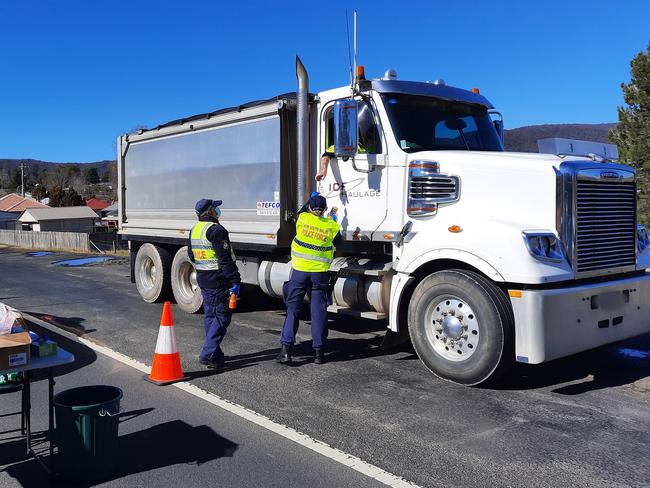
The Ballina sewage treatment plant serves about 31,100 people and the Broken Hill sewage treatment plant serves about 9,900 people, where there are no known cases.
While there are known cases in Raymond Terrace, NSW Health is also urging local residents to be vigilant in the area as the Raymond Terrace sewage treatment plant has detected fragments of the virus that causes COVID-19. The Raymond Terrace sewage treatment plant in the Hunter Region serves about 35,000 people.
School shut down
A public school in Sydney’s southwest has been forced to temporarily close after a member of the school community was confirmed Covid positive.
On Friday afternoon Berala Public School shut its doors to staff, students and visitors and will
undergo deep cleaning over the weekend before reopening on Monday to students who cannot learn at home.
A spokesperson for NSW Education said the department was working closely with NSW Health to ensure the health and safety of all students and staff, and identifying and communicating with close contacts of the case
“All close contacts have been notified and asked to self-isolate for the required period. There is no other action required for our school community,” the spokesperson said.
New travel permits
People will need a permit to travel to regional NSW, and travel to second properties will only be allowed to undertake essential maintenance or tend to animals under a tightening of the public health orders.
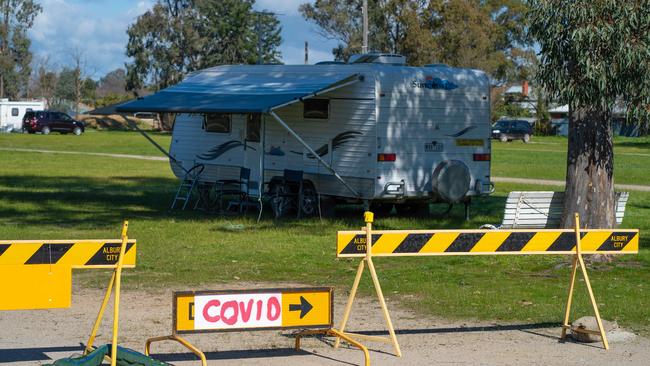
Singles in restricted local government areas will have to “register” the person they want in their “bubble”, while the word “recreation” will be scrapped to stop people from using it as an excuse to gather in parks and playgrounds.
The proposals — put forward by Police Minister David Elliott and Police Commissioner Michael Fuller and adopted on Friday night by crisis cabinet — are aimed at giving police clearer rules to enforce while closing up loopholes.
Permits will be effective from next Saturday but police will be increasing random vehicle stops and people breaching rules will be fined.
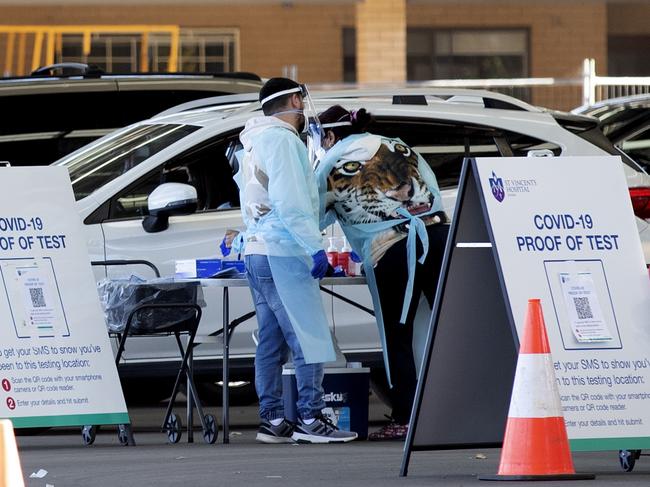
The proposed rule changes followed a tense meeting between Mr Elliott and Health Minister Brad Hazzard on Tuesday.
A senior government source said Mr Hazzard accused Mr Elliott of speaking “waffle” when Premier Gladys Berejiklian asked him what he thought of the Police Minister’s proposals.
Mr Elliott and Mr Fuller are also working with the hospitality industry on a plan to allow anybody who is double vaccinated to go to licensed premises next month, starting with beer gardens and outdoor areas.
However, Ms Berejiklian on Friday put something of a dampener on such hopes.
“What we want to achieve in September and October is to provide some opportunities for people to have an extra thing that they can do which they currently can’t do today, but I don’t want to give the impression it’s going to be freedom all around,” she said.
